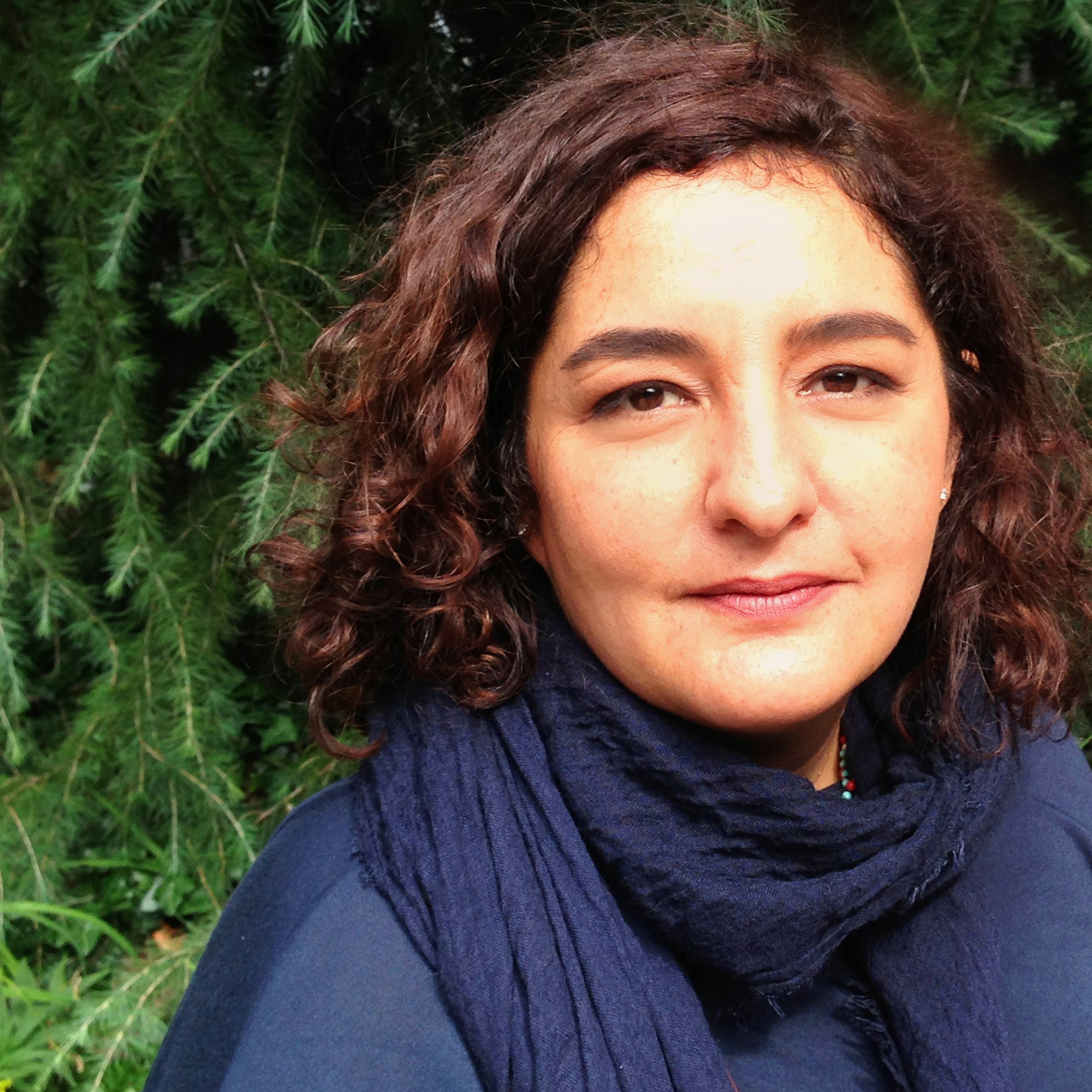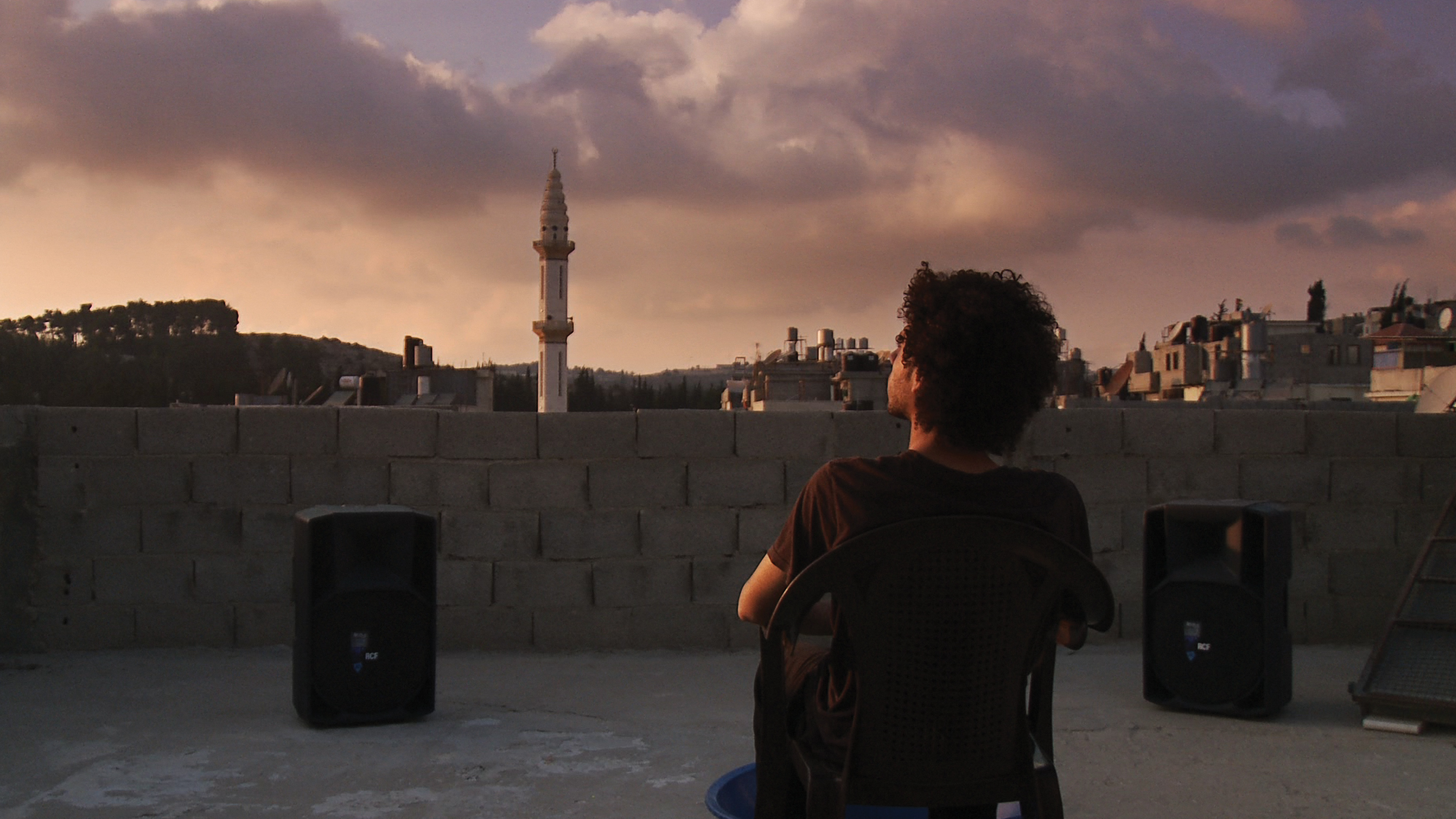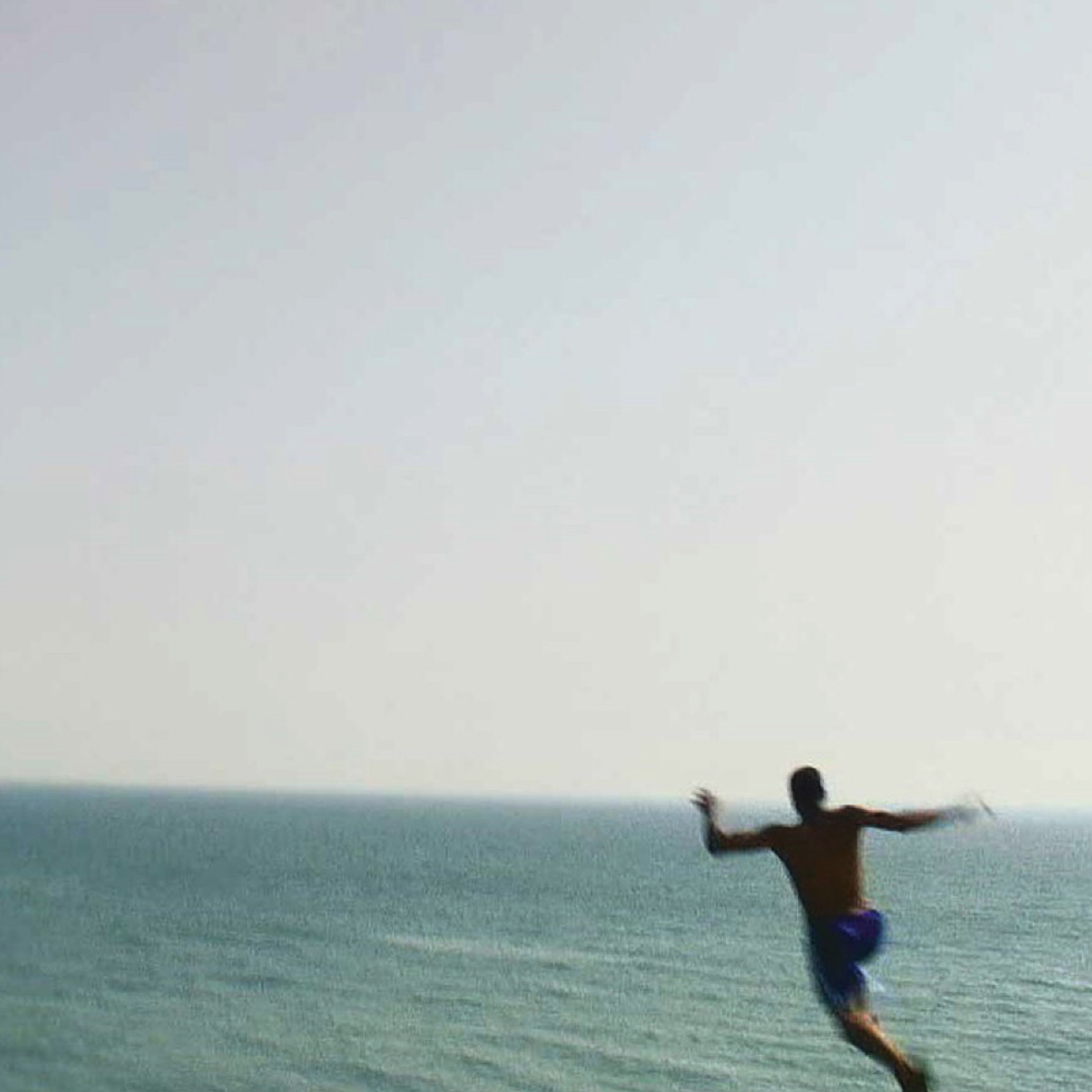Blurring the line between fiction and documentary in a Palestinian love story
In August 2003, Ramallah-based Palestinian artist Hasan Hourani drowned to his death in the Mediterranean Sea off the coast of Jaffa, as he tried to rescue his nephew. Neither of them knew how to swim; they had sneaked into Israel to visit the beach in Jaffa, since as Palestinians from the West Bank, they were forbidden to cross over. Hasan was just 29 years old.
At the time, Hasan had been working on Hasan Is Everywhere, a children’s book about a character named Hasan who wandered the world freely, looking for love. He had only completed ten of the 40 drawings he had planned for the book. The year following his tragic death, the book was published by the A.M. Qattan Foundation, a UK-based NGO dedicated to promoting Palestinian arts & culture.
When Mais Darwazah, a Palestinian-Syrian filmmaker from Jordan discovered Hasan’s book, she was deeply moved by Hasan’s stories; and while reflecting on his fate, his work, and Palestine, she came to ask herself many questions, and was ultimately inspired to make a film. Following in Hasan’s footsteps (literally), Darwazah went to Palestine to discover more about a ‘lover’ (as she refers to Hourani) she had never met, and a land she had never visited. With lingering shots, composed frames, and a melancholy piano score, Mais’ film takes one on a journey to her Palestine, chronicling her first-ever visit there, to a Jaffa devoid of oranges, an unknown ancestral Nablus, and a Jerusalem where beauty thrives beyond walls.
Sabah Haider recently talked with Mais about her film after its premiere at the 2013 Toronto International Film Festival.
What I find so particularly moving about your documentary is the heaviness of the poetry of a romantic love, and how that emerges as a strong theme in itself. For me, it was at times hard to look at your film as being political, because it struck a chord in my heart in the feminine sense of romantic love. What do you think? Do you consider your documentary to be political?
When I started making this film, there was a question that came up at the beginning; there were so many films being made about love, and the question that came to me at the time, was, what is so particular about this love? When I started writing [the script], I realised that for a person that is forbidden from [living in] their home or their space – whether you are a Palestinian living abroad in the diaspora, or … [in Palestine] – [you are] forbidden from [doing] so many things, such as … [moving around freely], existing normally … So, love for me became something that was tied to a political context.

Mais Darwazah
When I looked at Hasan’s work, I actually really liked his eyes, and felt I wish I had the time to meet this person. He became like a muse – more than just a straight lover. I felt that maybe we could have been friends; and maybe we could have been that, or that, or that … these questions started coming into my head: would I have felt the same thing if I was looking at anyone else from anywhere else in the world? Or did the fact that he was Palestinian, and from my home, actually have a different impact on the reaction I had to his work?
I think of course for me, the fact that he was Palestinian meant that the love started [evoking many more] metaphors in my head – it wasn’t just [about] a girl talking about a love story. Love for me is everything that we learn, that we miss, that we long for, that we don’t have. [I realised] what was missing from my life wasn’t necessarily just love – it was people … [I was a] dreamer and [was] not finding that ‘space’ in real life … There was my mother and Hasan who kind of dreamed of this beautiful world, [but] who didn’t find it … and the strength of [Hasan’s] work [was in] such contrast to the reality he lived.
Your film blurs the line between fiction and documentary, something that isn’t commonly seen in Palestinian cinema, where documentaries have a predominant role – how did your film evolve into what it is?
There was a quote I once found from [the Palestinian writer] Mourid Barghouti, that I found very interesting – [about] when you’re forbidden from your space and the occupation puts [up] so many walls, and you’re forced to love an unknown lover in Palestine … I am not saying this is how I will work every time I make a film, but this [feeling and approach] is particular to this [one]. When you are talking about memory, nostalgia, and all these [intangible] elements, the element of fiction comes in very naturally, because a lot of emotions are thoughts are imagined. They are real in the sense that you’re thinking of them and feeling them, but a lot of things [relating to] memory and nostalgia could [stem from our imagination].
Love for me is everything that we learn, that we miss, that we long for, that we don’t have
Having said that, it doesn’t mean that because you have more elements of fiction [in your film] that you’re less truthful … and it’s not like the more mainstream or [traditional] documentaries … are more truthful. By editing [a film], you’re already manipulating the truth. For me, there’s no real difference between fiction and documentary; the only difference is that maybe you’ll have a paid actor. Other than that, I find [fiction and documentary] to be two genres that are quite similar.
For a [film] such as mine, [there are] of course many technical details [that classify it as a documentary], but there is [also] imagination and [the process of] writing the story. I wrote about characters that I [had] never met; and when I went to find the characters, I went to look for people who were close to [the characters] I was writing, to what I desired. So, in a way, [it] is a bit interesting how your mind [creates] something, and [how] you go and try to find [that] in reality.

I understand that in making this film, you made your first visit to Palestine – how did it feel? Is it your mother or father who’s Palestinian?
My father is Palestinian, and [so is] my [maternal grandmother]. Her father and uncle fled to Syria in 1936, because they (Izzat and Mohammad Ali Darwazah) was [involved with] the strike of 1936, and the English wanted to hang Izzat – they escaped to Syria and continued [the activism]; and it [was] from there that the Arab National Movement grew. In a way, I’m part Syrian, but I grew up in Syria in a very Palestinian home.
So you grew up with a strong Palestinian identity?
I didn’t grow up with a strong Palestinian identity, because in a way, there was questioning [going on] as I was growing up. Living in Jordan, having a Jordanian passport – of course, everything about our home is Palestinian, but there was a point [where] I became weak and started asking questions. Being young and not understanding what things mean … There was an independent realisation [I had] of what it means to be Palestinian; it was a choice [I made] at an older age. This is not personal – I have a few friends who have gone through the same experience.
Certainly all identities are, in essence, realised.
Yes. It was a conscious choice to say, this is me, and that I mean ‘this’ and ‘this’; and that ‘this and this’ can change and mutate and take different forms.
In the narrative you constructed, you have so many characters that are more than just people. For example, Jaffa is a character in your film, and so is Jerusalem … oranges are also characters; and these are also symbols. In some ways, you don’t use the same symbols that many other Palestinian filmmakers use in their films – can you elaborate on this?
We are [brought up] with certain clichés about Palestine; they’re not always clichés, but they are the same things that we all hear and know [about]. I had to find a new set of clichés … I mean, enough. My mind got too filled with the known things; I needed to ask my questions …
There’s a positive side to being away from a place that you’re from, and which you can’t get to. Like I told you, I’m from Nablus, but my father was born in Jaffa … When you’ve been disconnected from a space, you have two options – the first is to say, ‘I am from there’. I am [from] Nablus [in terms of tribal roots], but when I went to Nablus, I didn’t even care to see my parents’ house, because … who cares? It’s just a house, it’s stone. When I went, it was really nice, because I decided to choose where I wanted to be from in Palestine.
The other option [you have] is to choose [where you’re from]. I had that freedom, because I didn’t have the connection to the land, and I had the tribal link, which I’m against. I am not against my family, but I am against [accepting] these relations that are pre-decided because of genetics. You have to discover who you are and what you like, and that’s how I was raised in my home … When I went [to Palestine], I had the freedom to say that I want to come from ‘here’ and ‘here’, etc., and that these are all my places, because I like them; and that [was] so liberating for me.

